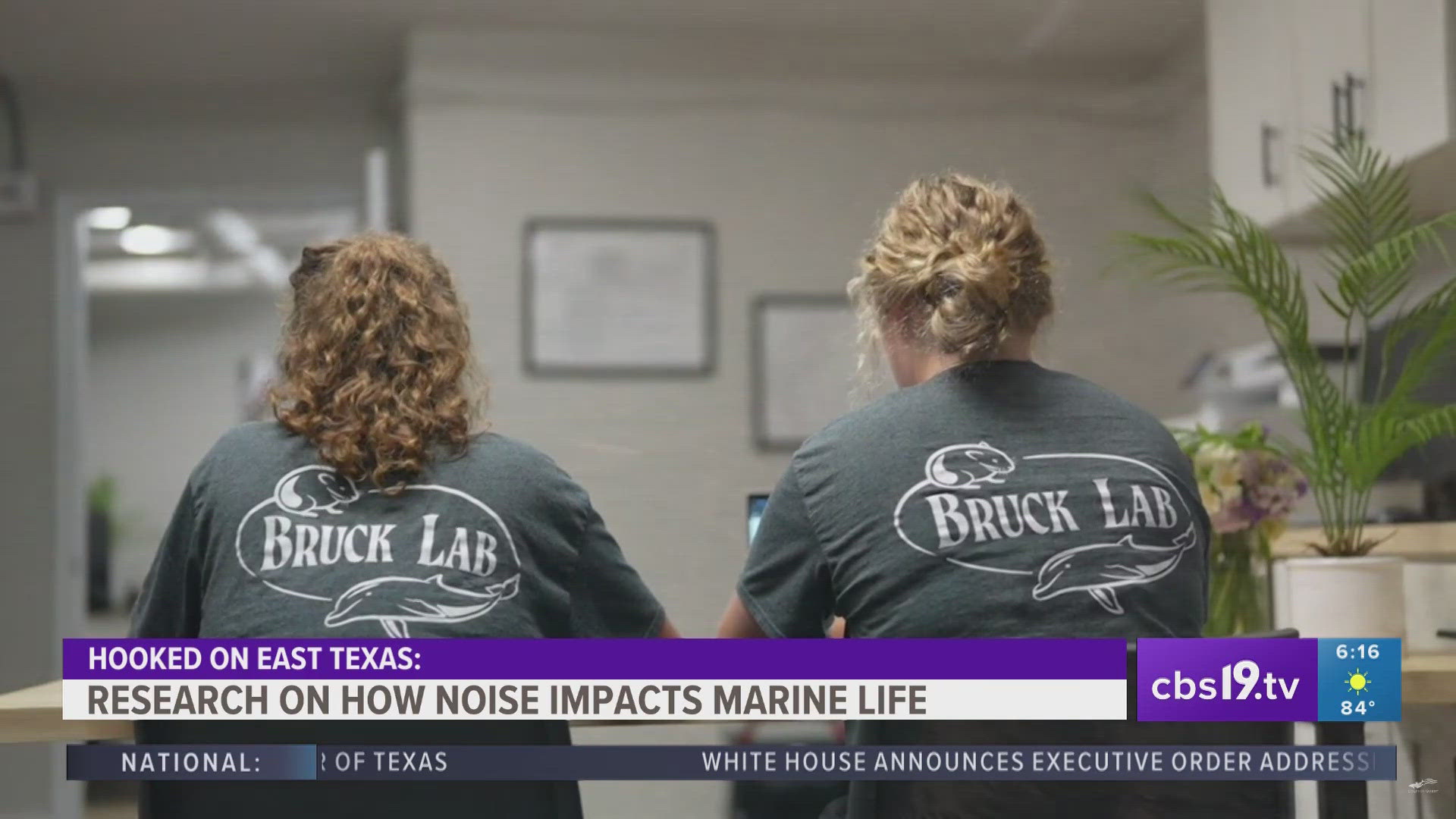NACOGDOCHES, Texas — Noise is an everyday part of life. But have you ever wondered how noise from cruise ships, jet skis and other vessels affect sea life? In this edition of Hooked on East Texas, we take a deep dive into research hoping to one day improve marine life off the Texas coast.
The groundbreaking study, that looks at how sounds in the sea affect dolphins, involves students and professors from Stephen F. Austin State University in Nacogdoches.
"Humans make a lot of noise in the ocean and we want to know how we are affecting the animals and their behavioral responses," said undergraduate research assistant Rachel Moore.
Moore was part of the team that spent part of the summer at Dolphin Quest in Hawaii learning how dolphins talk to each other. Dolphin Quest is a veterinarian-owned marine sanctuary that professionally cares for dolphins and offers close up encounters.
The team of researchers included SFA's Jason Bruck, an assistant professor in the college of science and mathematics. He said the first order of business was to learn what each dolphin's unmistakable chirp meant.
"So, dolphins have signature whistles and whistles work like names," Bruck explained. "They actually name themselves in the first year of their lives. And so, once they have that signature whistle, what they do is they use it to play Marco Polo in the water to find each other when they get separated".
To learn ocean noise could interfere with that communication process, scientists put two speakers in the pools where the dolphins were living. From one speaker, they played cruise ship noise, jet ski noise and white noise. At the same time, from a separate speaker, researchers played different dolphin whistles, then tracked the dolphin's response.
"Now why would you do that?," Bruck asked. "It's like the cocktail party effect, we're trying to figure out, can they hear through the noise"? "Can they figure out where everybody is"? "Because, if not, you could have a baby dolphin getting lost, not being able to find their mothers and dying."
Critical information is also being sought into whether dolphins will adjust by simplifying their whistles to cut through the noise.
“Which then puts the dolphins in a rough spot, because it means every dolphin is going to be named Bob, trying to communicate, and everybody's just going to get very confused," explained Bruck. "So, we're trying to figure out how we're limiting their communication as a function of the noise we're putting in the water.
Moore added, “I think mostly humans have a negative effect on animals, because we are affecting how to communicate with one another, and we want. To best help them.”
Federal law puts limits on how close vessels can come to dolphins. The data analyzed on spectrographs then cataloged in this study will help regulators establish additional noise limits for ships and boats moving through the Gulf of Mexico.
“Especially in Texas, there's a lot of areas where there's a lot of shipping and a lot of movement. And if we can find ways to keep frequencies of these vessels out of the frequency ranges that the dolphins need to communicate in, that will be really helpful for them".
And a summer of study, Moore will never forget.
“So, working with these animals, it's been very life changing knowing that we have such an impact on them, and that I personally just want to learn how to love them better and how to take care of them better," said Moore.
The dolphins in this study were healthy and under professional care of Dolphin Quest. The Bruck Lab at SFA will next conduct field studies off the Texas coast near Galveston to learn how noise is impacting dolphins living in the wild.

